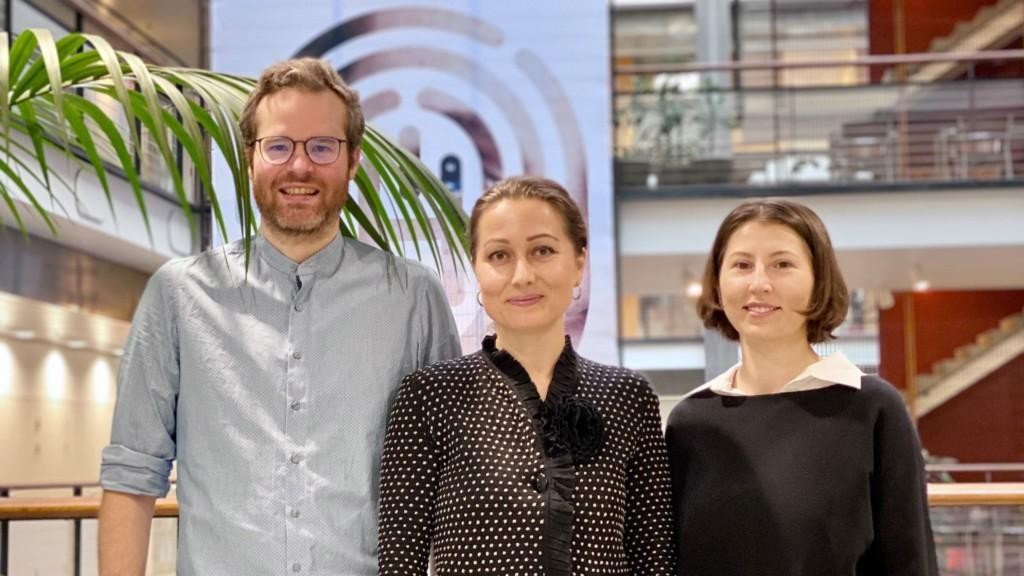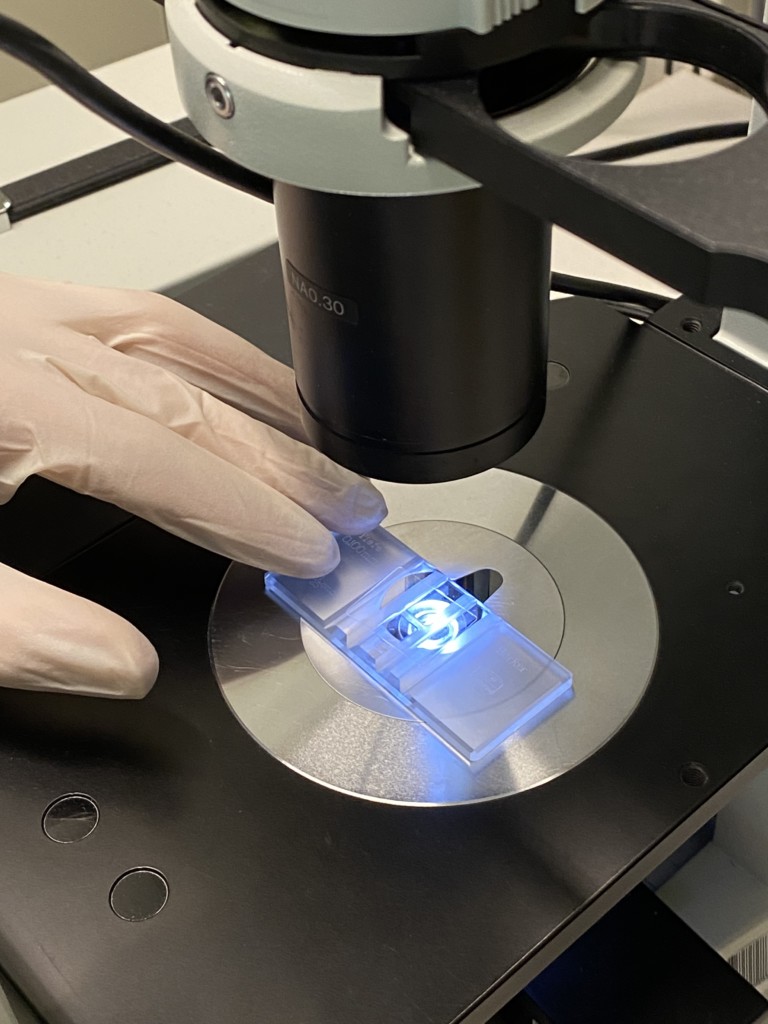Moncyte R&D team targets optimal cholesterol-lowering therapy

Moncyte R&D team has developed a unique solution that sheds light on why some people respond differently to cholesterol-lowering drugs. This novel, personalized test for optimal cholesterol-lowering therapy promises to open new ways for personalized medicine and improving patients’ lives. Moncyte team joined the Health Incubator Helsinki program in spring 2022.
A high blood cholesterol concentration is the most important risk factor for cardiovascular disease which is the most common cause of death worldwide. Currently, doctors take a trial-and-error approach in determining the optimal cholesterol-lowering therapy.
“However, this can take years and it leaves many patients at high residual risk for cardiovascular disease,” says Tamara Alagirova from the Moncyte team out of the University of Helsinki. The Moncyte team includes also Simon Pfisterer, Iryna Hlushchenko and Valeria Ullrich.
Moncyte has come up with a solution that provides insight into the cellular mechanisms underlying cholesterol-lowering drug activity in individual patients.
“This tool opens up new ways for personalized medicine approaches in cholesterol treatment, helping more patients achieve their cholesterol target levels at an earlier time. This will save time and prevent life-threatening complications such as heart attacks and strokes,” Simon Pfisterer says.
When everyday research takes a surprising turn
The original research-to-business project started in July, 2021, at the University of Helsinki. The idea for the solution came up as the researcher team was establishing automated analysis strategies for its in-vitro assays and realized that this could be of value for patients, healthcare providers and pharma companies.
“We then evaluated the feasibility of our approach with biobank and familial hypercholesterolemia patient samples and received promising results,” Iryna Hlushchenko traces back the origin of the innovation.

Finding quality support
Nevertheless, having started as a basic research project at the University, it was difficult to figure out how to bring this technology to the patients. Luckily, the researchers had some quality help:
“Through active engagement in Spark Finland and now Health Incubator Helsinki, we established a roadmap which will lead us to this goal,” says Tamara Alagirova. In addition, the team received Business Finland research-to-business funding to develop its technology further.
“We plan to spin out from the university and establish a company in summer 2023,” explains Alagirova.
Driving force
For the research team, the ultimate goal is for their invention to find widespread application, helping patients and doctors to select an optimal treatment strategy – quickly providing positive impact for patients, the healthcare system and society.
“As scientists, we want our research to lead to improvements for patients and society. The technology that we are developing has the potential to achieve this. Our goal is to make this happen and this is our biggest motivation,” Simon Pfisterer says.
Connecting with fellow founders
The Moncyte team is happy to be selected into the Health Incubator Helsinki’s incubator program as the only research-to-business project among startups.
“We have only had positive experiences so far. We look forward to connecting and sharing experiences with fellow founders, get the most out of the exciting ecosystem and proceed with investor relations,” Alagirova says.
The team is looking to secure seed funding mid 2023 in order to get the project to the next level.
Startup Fast Facts:
Name: Moncyte (research team)
Product: Analysis tool uncovering why individuals respond differently to cholesterol-lowering medication, enabling novel personalized treatment strategies
Founded: To be incorporated in 2023
Team size: 4
Target customer/market: Patients, healthcare providers and pharma companies
Text: Sami J. Anteroinen
Photos: Moncyte